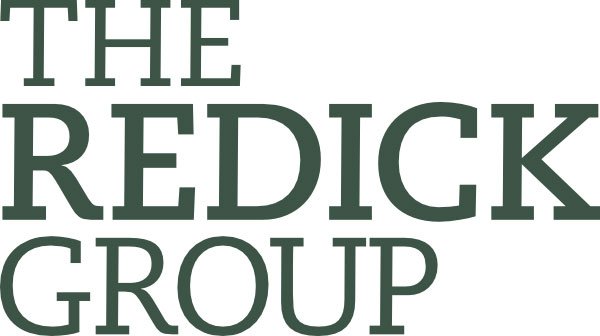What Is Corporate Governance
ID 96632879 © Convisum | Dreamstime.com
Corporate governance is the system of rules, practices, and processes by which a company is directed and controlled.
It provides the framework for balancing the interests of a company's many stakeholders—including shareholders, management, employees, customers, suppliers, lenders, government, and the community (Investopedia, 2023). Critically, governance decisions are shaped by both internal mechanisms (such as company-created policies, risk appetite, and internal controls) and external forces (including regulatory requirements, market forces, and industry standards) (Diligent, 2023; OECD, 2015).
The Dual Nature of Corporate Governance: Internal & External Forces
Corporate governance is not just about the internal decisions a company makes for how it operates; it is also about how it responds to and complies with external pressures (Diligent, 2023).
Internal governance mechanisms include the board of directors, executive compensation, ownership concentration, and the development of internal policies and risk management frameworks. These mechanisms are designed to align management’s actions with the interests of the company and its stakeholders, set the organization’s risk appetite, and establish the ethical standards and operational procedures that drive day-to-day and strategic decisions (Investopedia, 2023; BoardSource, 2022).
External governance mechanisms involve regulatory requirements, independent audits, capital market oversight, and industry best practices. These forces are imposed by outside entities—such as government regulators, auditors, and market actors—and ensure that companies adhere to legal standards, maintain transparency, and are held accountable for their actions (OECD, 2015; SEC, 2020).
The interplay between these internal and external elements is fundamental to effective governance. For example, while a company’s board may set its own risk management policies, those policies must also satisfy external regulations like the Sarbanes-Oxley Act in the United States or capital market disclosure requirements in Europe (World Bank, 2019).
Why Is Corporate Governance Important?
Effective corporate governance is essential for several reasons:
Trust and Reputation: Good governance, shaped by both internal policies and external compliance, builds trust with investors, employees, and the public, enhancing a company's reputation (OECD, 2015).
Long-Term Sustainability: It fosters a culture of integrity and responsible decision-making, supporting positive performance and long-term success (Corporate Governance Institute, 2023).
Access to Capital: Companies with strong governance are more attractive to investors and lenders, improving access to funding and reducing capital costs (World Bank, 2019).
Risk Mitigation: Governance frameworks help identify and manage risks, protecting the interests of shareholders and other stakeholders (Deloitte, 2022).
Compliance and Ethics: Governance ensures compliance with laws and regulations and promotes ethical behavior throughout the organization (SEC, 2020).
Effective Decision-Making: Clearly defined roles and responsibilities, informed by both internal and external standards, expedite decision-making and improve organizational efficiency (McKinsey & Company, 2020).
How Does Governance Differ from Strategic and Tactical Leadership?
While corporate governance, strategic leadership, and tactical leadership are all vital to organizational success, they serve distinct roles (Strategic Management Society, 2022):
Key Differences Summarized
Corporate governance is about ensuring the organization is run ethically, transparently, and in compliance with both its own policies and external requirements. It is primarily the domain of the board of directors and focuses on oversight and control (Investopedia, 2023; Diligent, 2023).
Strategic leadership is about setting the organization's direction and making high-level decisions that shape its future. Strategic leaders (often senior executives) look at the big picture, anticipate changes, and drive innovation (Harvard Business Review, 2017).
Tactical leadership is about executing plans and managing day-to-day operations to achieve short-term objectives. Tactical leaders (often managers) ensure that the organization's immediate needs are met efficiently and effectively (Indeed, 2023).
Both strategic and tactical leadership operate within the framework established by corporate governance, but governance itself is distinct in its focus on both internal policy and external compliance, as well as stakeholder alignment (Diligent, 2023; SEC, 2020).
In conclusion:
Corporate governance is the backbone of responsible business management, blending a company’s own internal decisions with external regulatory and market forces. It ensures accountability, transparency, and ethical conduct while setting the framework within which strategic and tactical leadership operate. Governance establishes the rules and oversight, strategic leadership sets the vision, and tactical leadership ensures effective execution of daily operations. All three are essential, but each plays a unique and complementary role in driving organizational success.
Why Did I Publish This Post?
In my work helping board directors, C-suite executives, and aspiring leaders define their executive identities, I often get this simple question: “What is corporate governance?”
Yes, even Fortune 50 leaders get confused about how to answer this question. I recently queried Perplexity and the answer was, unsurprisingly, superb. I’ve made minor edits, but roughly 80% of the query remains intact below for reference by clients and myself when we encounter this question again.
About Jared
Jared Redick is a San Francisco-based executive coach, communications strategist, and brand development consultant with more than 25 years of experience helping companies and high-level professionals position themselves for growth and change. Get career coaching here, or co-develop your professional identity here.
References
Investopedia. (2023). Corporate Governance: Definition, Principles, Models, and Examples.
Diligent. (2023). Corporate governance rules: What they are & why they matter.
The Corporate Governance Institute. (2023). What is Corporate Governance?
U.S. Securities and Exchange Commission (SEC). (2020). Spotlight on Corporate Governance.
Strategic Management Society. (2022). Strategic Leadership & Governance Interest Group.
Harvard Business Review. (2017). What Makes an Effective Leader?
Indeed. (2023). Tactical Leadership: Definition and Key Characteristics.
LinkedIn. (2022). Tactical Leadership Vs Strategic Leadership | Which is better?
iDeals Board. (2023). Importance of Corporate Governance in Modern Business.
University of Pittsburgh Law. (2021). Corporate Governance: What It Is and Why It Matters.
Financial Times Lexicon. (2023). Definition of Corporate Governance.
PwC. (2021). Corporate Governance: The Foundation for Business Success.



